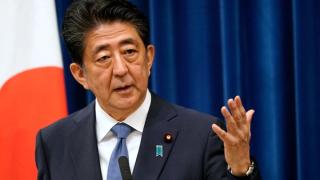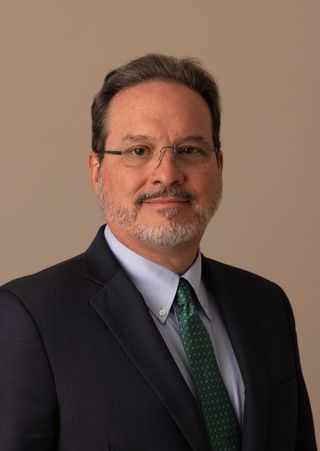As the world responds in shock and sadness to the assassination of former Japanese prime minister Shinzo Abe, the public is also learning what a consequential statesman and loyal friend he was. I first came to know Abe more than two decades ago when I was on the National Security Council staff of President George W. Bush and Abe was a lieutenant to then PM Junichiro Koizumi.
As a Japan scholar who spoke Japanese and had met Abe, I was tasked with keeping in close touch with him through crises from 9/11 to North Korean nuclear blackmail. He was a steady hand in Tokyo and we maintained our connection as he assumed the premiership, fell from power, and then returned triumphantly to become the longest-serving PM in Japanese history. It is not surprising to me world leaders from Narendra Modi to Tony Abbott are genuinely mourning the loss of a close friend and noting the transformational impact he had on Japan’s relations with the world.
It is worth remembering that when Abe first rose to power in 2006, his proposals for closer alignment of the maritime democracies and formation of a US-Japan-Australia-India “quad” to counter China were dismissed by the foreign policy establishments in Canberra and Washington. When Abe returned to power for a second time in 2012, the Obama administration was still worried his hard-edged view of China might upset its pursuit of a stable condominium with Beijing. Indeed, Chicago Council on Global Affairs public opinion polls that year showed a plurality of Americans thought it was time to emphasise relations with China rather than America’s traditional ally, Japan. Similar sentiments had emerged in Australia and other countries at the time. Chinese diplomats saw an opportunity and commenced a global campaign to shame and isolate Abe, culminating with China’s ambassador in London comparing Abe to Lord Voldemort in the pages of The Telegraph.
The Trump and then Biden administrations embraced Abe’s original proposal for the Quad, as did the Morrison and Albanese governments in Australia.
But Abe patiently made his case. As Xi Jinping militarised the South China Sea, boycotted South Korea and Australia, cracked down in Hong Kong and Xinjiang, and embarked on voracious technology acquisition strategies, Abe’s assessment of the geopolitical situation gained converts. By 2019, the Chicago Council on Global Affairs polling showed two-thirds of Americans had changed their minds and wanted to align more closely with Japan rather than China. The Trump and then Biden administrations embraced Abe’s original proposal for the Quad, as did the Morrison and Albanese governments in Australia. In 2016, Abe proposed a “Free and Open Indo-Pacific” framework that would compete with Chinese hegemonic ambitions in the region by investing more in infrastructure and development in Southeast Asia and the Pacific. The US and Australia signed on, and Europe and the new government in Seoul are warming to the approach.
No allied leader has exerted more influence on American strategic thinking about China and Asia in the modern era than Abe. But it is noteworthy that Beijing last week acknowledged that Abe had also taken important steps to improve Japan’s relations with China, a legacy that those rightly praising his strong stand against Chinese coercion should keep in mind. He ultimately sought a free and open Indo-Pacific backed by powerful alliances, but not the complete containment or isolation of China.
Abe backed up his strategic vision with a willingness to have Japan take on greater risk. Throughout the post-war era, Japanese PMs took cover behind an interpretation of Article Nine of the Japanese constitution that rejected any involvement in collective defence. This conveniently allowed Tokyo to apologise politely for sitting out every post-war conflict where Americans and Australians fought, while focusing on building up the Japanese economy – often to the intense frustration of Washington.
In 2015 Abe issued the longest and most detailed apology for what his country had done in World War II of any post-war leader from either Japan or Germany. But it was, he emphasised, the last official apology. Australians and Americans accepted it.
Abe convinced the Japanese people that with growing threats from China and North Korea, this post-war stance was no longer in their interests. After long debate and many protests outside the Diet in 2015, he won support for a reinterpretation of the constitution premised on the idea that Japan must be prepared to help the US – or, as he stated explicitly to the Diet, Australia – should these close friends come under assault in a conflict vital to Japan. He further consolidated the ability of Japanese PMs to lead in crises with the establishment of new authorities and a US-style national security council. The Japanese people now expect their leaders to stand up and lead when crises confront the free world, as Abe’s successor, Fumio Kishida, has done on Ukraine.
Historians will also note that Abe often saved America from itself. When the Obama administration was debating how to respond to China’s militarisation of the South China Sea, Abe patiently warned of larger hegemonic designs by Beijing. When the Trump administration withdrew from the Trans-Pacific Partnership, Abe worked with Australia to preserve the trade pact and save a seat for the US. When Trump fought with European leaders, Abe used the G7 summits to rebuild trans-Atlantic comity.
The Lowy Institute was right to conclude in its 2019 Asia Power Index that Japan had emerged as the leader of the liberal order in Asia. But Abe was smart enough to know he could not do it without the US. He was the ultimate Trump whisperer: the only democratically elected world leader who could convince the president to do the right thing … or at least put off doing the wrong thing (like withdrawing US troops from South Korea). Abe believed in the world order America built and recognised the need for others to step up and maintain it when challengers arose or America faltered. But he also fundamentally believed in America.
Abe’s ideological streak came through in his public discourse and private conversations, of course. He resented the fact his grandfather, Nobusuke Kishi, had been briefly purged by US occupation authorities and later ejected as PM by his party after negotiating a stronger alliance with the US in 1960. He was frustrated that China continued to cast Japan as a villain in international affairs and grew wary of Japanese apologies to the region. And yet in 2015 he issued the longest and most detailed apology for what his country had done in World War II of any post-war leader from either Japan or Germany. But it was, he emphasised, the last official apology. Australians and Americans accepted it. So did South and Southeast Asian publics where Japan consistently polls as the most trusted power in the world. Beijing was never expected to accept Japan’s apology. Reconciliation with democratic South Korea remains one of the few areas of unfinished business in Abe’s grand design.
World leaders called Abe their friend. They genuinely liked him. And they recognised that their own countries were more secure because of his leadership.






